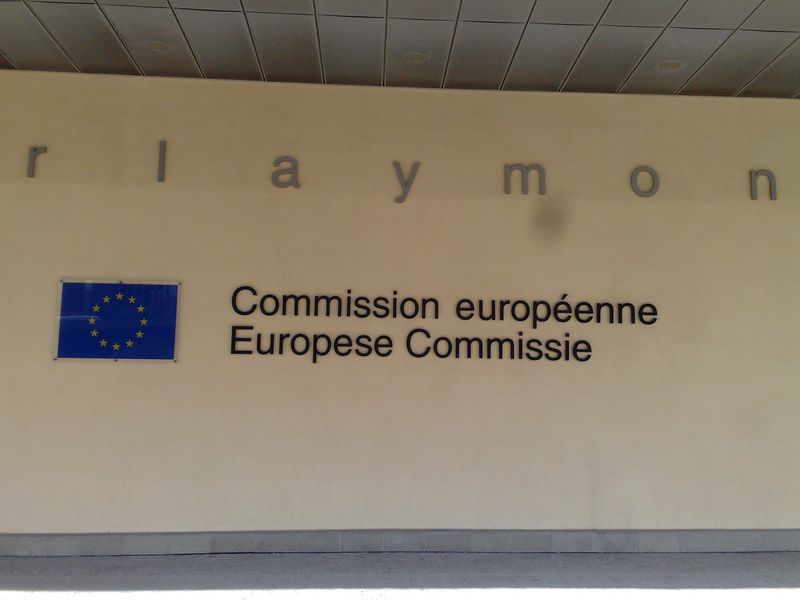More questions than answers
Adelina Marini, April 5, 2010
 The way the government is tackling the budgetary deficit, claiming it is tackling the crisis, resulted this week in a package of 60 anti crisis measures which caused more questions than provided answers. We, from euinside, are disappointed of the way the government and the social partners announced the measures without giving them to the journalists before the press conference and then escaped answering concrete questions. This is why we decided to ask some experts economists. For the purpose we have sent a special questionnaire. Here are the answers of the former minister of finance from the liberal NDSV party Lyubomir Datsov.
The way the government is tackling the budgetary deficit, claiming it is tackling the crisis, resulted this week in a package of 60 anti crisis measures which caused more questions than provided answers. We, from euinside, are disappointed of the way the government and the social partners announced the measures without giving them to the journalists before the press conference and then escaped answering concrete questions. This is why we decided to ask some experts economists. For the purpose we have sent a special questionnaire. Here are the answers of the former minister of finance from the liberal NDSV party Lyubomir Datsov.
1. How should we understand the following measure: "Gathering of additional internal and external financial resources, aimed at supporting the fiscal reserve" - where this additional financial resources should come from and how?
LYUBOMIR DATSOV: Well, jokingly, every finance textbook says it: loans (commercial loans or from international financial institutions, the European Commission), debt emissions and privatisation revenues. A prerogative of the government is to decide where from. The best solution, I think, is from the IMF or the European Commission, because this would be cheapest and, most importantly, will force the government to start any reforms*.
2. Many of the measures have no deadline and a financial effect estimation (or how much they would cost), could you give your assessment of how effective these measures would be and when should we expect an effect?
LYUBOMIR DATSOV: There is no way that they can have any effect. The estimations are in a very broad range and are actually quite indicative. So far the government has nothing started and completed, so it is impossible to forecast what will happen.
3. For example, the plans for greenhouse gasses sale, privatisation, measures to restrict public spending and the completion of e-government, etc?
LYUBOMIR DATSOV: All these measures must be supported. But it is a different issue how realistic the expectations of their realisation are. Greenhouse gas emissions trade, for example, requires capacity and experience, as well as long negotiations. In other words, I am skeptical that a good deal can be achieved this year. Otherwise, it might prove again that deals are concluded not in benefit for the state.
4. How possible it is to achieve the goal of collecting 1.6 bn levs this year from these measures? And, in fact, what problems this money can solve?
LYUBOMIR DATSOV: We will understand this when the government would revise the budget, as is right to do. So far only they know what they want to solve.
5. Which measures do you consider good and working? (for example, are the measures to recover fiscal discipline good ones?)
LYUBOMIR DATSOV: It is very difficult to tell. The measures are a sum of different lobbyists' and old ideas and are measures of purely fiscal type. The problem is that there isn't any strategic vision. It is hard to make whatever assessment since in the day when these measures were published, the Ministry of the Environment and Waters changed the rules concerning renewable energy projects, thus harming investments for over 1 bn levs. These things should not be done in a normal business environment the way they were done, especially in times of a crisis. So, tell me how can you expect an increase of tax collection when you're screwing the business all the time?
6. What is your opinion about the decision to increase the capital of the state Bulgarian Development Bank, aimed at directing financial resources toward small and medium enterprises?
LYUBOMIR DATSOV: This is an idea of the NDSV (the party of the former prime minister and tsar Simeon Saxecobourggotta), which we proposed 4 months ago. So, I personally support this measure very strongly. It would have been better if there was a strategy to tell what to do with the money, but let's see.
7. The sick-leaves - the National Insurance Institute will start paying sick-leaves from day 4 - by then the employer will pay the first 2 days of a sick-leave and the worker will finance the 3rd day. Given that the worker and the employer have already paid health insurance contributions, isn't this in fact a hidden increase of health contributions?
LYUBOMIR DATSOV: This is purely a fiscal measure. So many principles and rules of social insurance have been violated, another one won't impress anyone.
8. Regarding the measures in support of household incomes, do you approve the commitment to increase the minimal wage and do you think that all these measures are directed toward the poorest and unemployed rather then to the middle class of working people?
LYUBOMIR DATSOV: The attempts to impose artificial levels and proportions of incomes are not a good approach. Not to mention increasing the minimum wage during a crisis - this means to deliberately bankrupt enterprises and another several thousand people to lose their jobs.
9. Is there a real possibility VAT to be increased to 22% (from the current rate of 20%) and what would the consequences of such a measure be?
LYUBOMIR DATSOV: In fact, instead of proposing any extravagant ideas like "luxury" taxes etc., it would have been much better to increase VAT in the first place, if there was no other way to stabilize the budget. But look, here we have the entire philosophy in preparing the programme wrong. Can anyone tell me why 60 measures and whether so many measures would not neutralize one another? Such a programme must be as focused as possible on a small number of measures, in order for it to be successful.
10. Do you share the government's satisfaction with the work of the National Council for Trilateral Cooperation (NCTC) and that this is exactly how it should work in the future?
LYUBOMIR DATSOV: This is a matter of responsibility, capacity and many other things. The government escaped from taking responsibility and shared it with the trade unions and the employers. Maybe this is good for them. And here we should not talk about the work in the NCTC itself but about leadership.
11. Are the measures adequate against the background of the development of the crisis in Bulgaria and the forecasts that it will be a long one?
LYUBOMIR DATSOV: This is a matter of an analysis and an assessment. The measures are actually going to patch the budget and are not aimed at stabilizing the economy. It is clear that the government's forecasts are totally out of reality and I expect the economy to start recovering by itself by the end of the year.
12. Do you think the claims of the cabinet that the state has no money because the previous government has concluded contracts for which there were no money in the budget, have any grounds?
LYUBOMIR DATSOV: In Bulgaria obviously everyone can talk whatever he wants to. I wouldn't make such conclusions. And the numbers speak differently.
*The bolds are made by euinside. You can read more experts' positions later in our special subject - the anti crisis measures of the government.
 | © euinside
| © euinside | © euinside
| © euinside | © euinside
| © euinside